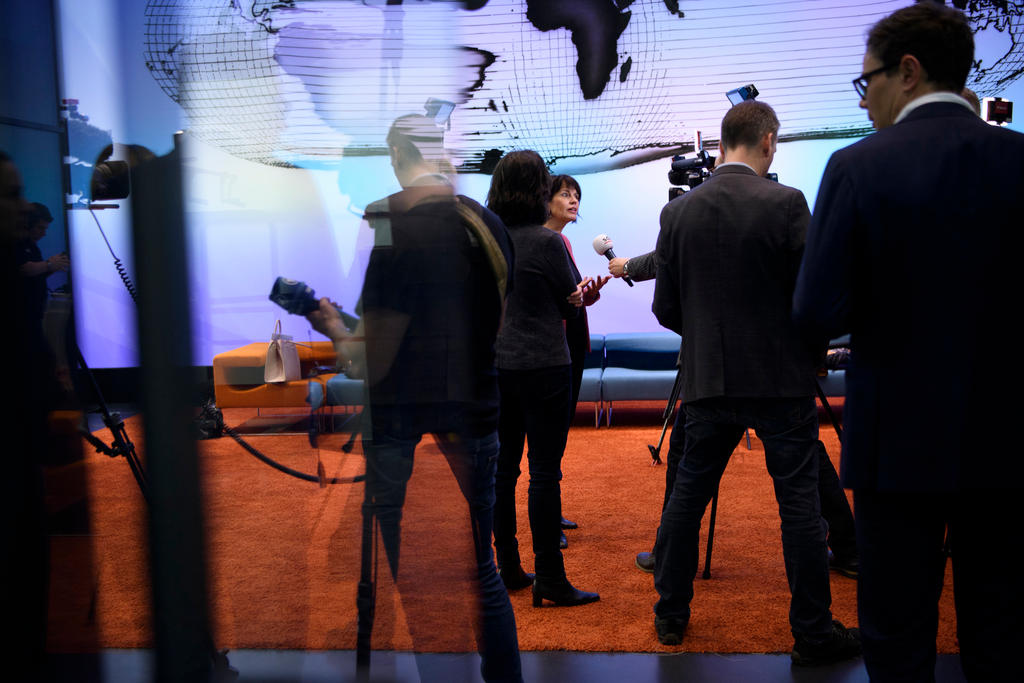
Swiss Abroad overwhelmingly rejected licence fee initiative

On Sunday the Swiss Abroad — like their compatriots back home — came out against an initiative, which aimed to cancel public financing for radio and television services by eliminating the mandatory broadcast licence fee. In most cantons, the proportion of 'no' votes from the Swiss Abroad sat around 77.9%.
The need to safeguard quality public broadcasting services appears to be obvious for the Swiss living abroad. On Sunday, they rejected the ‘No Billag’ initiative by a crushing majority, according to an analysis of the results of the March 4 vote in the 12 cantons that count votes from Swiss Abroad separately.
Whereas 71.6% of the Swiss population voted “no” on the initiative, the rejection was even more resounding in the diaspora, surpassing 80% in the cantons of Geneva (82.7%) and Basel-City (82.2%).
Several reasons can be proposed to explain this massive vote by the Swiss Abroad in favour of public broadcasting services. Various studies have shown that the Swiss Abroad tend to vote slightly more with the political left than their countrymen and women in Switzerland.
The initiative was launched by young, ultra-liberal politicians and supported mainly by the right-wing Swiss People’s Party.
Debate on expats’ right to vote
Sunday’s vote also confirmed an observation made in previous polls: namely, that expats tend to to have more confidence in the government and parliament than the domestic electorate.
In this case, they also followed the recommendation of the umbrella Organisation of the Swiss AbroadExternal link, which opposed No Billag.
The Swiss Abroad are exempt from the licence fee financing Swiss public radio and television. They therefore would not have benefited from the annual households savings of several hundred Swiss francs that the acceptance of the initiative would have brought.
The fact that Swiss expats can participate in decisions that do not affect them directly is a subject of regular debate in Switzerland.
In 2015, on the occasion of a very close vote, the Swiss Abroad were also accused of having tipped the balance in favour of the introduction of a generalised radio and television fee, even though they would not have to pay it themselves. It’s an accusation that it will be very difficult to frame this time, in view of the unequivocal results of Sunday’s vote.
Translated from French/cl

In compliance with the JTI standards
More: SWI swissinfo.ch certified by the Journalism Trust Initiative


























You can find an overview of ongoing debates with our journalists here . Please join us!
If you want to start a conversation about a topic raised in this article or want to report factual errors, email us at english@swissinfo.ch.